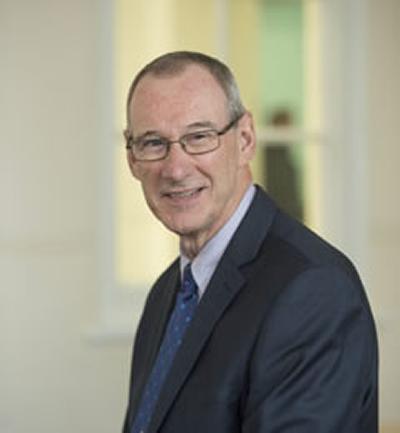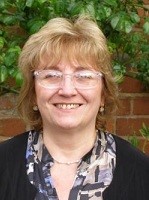Prof Michael Kelly

Professor Michael Kelly is Emeritus Professor of French in Modern Languages and Linguistics at the University of Southampton.
Mike is a specialist in modern French culture and society, especially the history of ideas and intellectuals, and on public policy in the area of languages and language education, in the UK and in Europe more broadly.
He studied French at Warwick University (BA and PhD), and lectured at University College Dublin, before being appointed Professor of French at Southampton. Mike has at different times been Head of Modern Languages and Linguistics and Head of Humanities. He directed a number of major UK projects, including LLAS Centre for Languages, Linguistics and Area Studies, Routes into Languages and Links into Languages. He has been a Board Member of the European Language Council since 1997. He has received honours from the French government for his work in promoting French studies, and was awarded an OBE in the Queen’s Birthday Honours 2014 for his services to higher education and European cooperation. He took retirement from the University in 2016.
He is currently working on languages in war and conflict, and on public policy in relation to languages. He published an edited volume on Languages after Brexit (Palgrave, 2017).
AM Keynote:
European responses to the challenge of language learning
Despite the EU’s long-held objective of creating trilingual citizens, almost half of Europeans claim to be unable to hold a conversation in a second language. Policy makers are concerned about this disappointing performance, and in responding, two interconnected strategies have emerged.
The first is to find alternatives to language learning such as improved translation services, intercultural communication or intercomprehension.
The second is to improve the quality of language learning. This paper will focus on attempts to improve language learning, drawing on the recent policy statements of the EU Commission and recent work by the Council of Europe. It will suggest that the language community needs to find new ways of thinking about its methods, about its aims and objectives, and about its place in education.
Prof Marina Orsini-Jones

Prof Marina Orsini-Jones is Associate Head of School (International) and Course Director for the MA in English Language Teaching and Applied Linguistics in the School of Humanities, Faculty of Arts and Humanities at Coventry University. She obtained her doctorate in 2012 with a dissertation titled: Towards a Role-reversal model of action-research-supported threshold concepts in languages and linguistics. Marina pioneered e-learning innovation in the 90s, when, as then Head of Italian, she created a multimedia CD-ROM to teach Italian language, culture and society with her students that was adopted by the Edexcel examination body for ‘A’ level Italian and by various HE Italian departments worldwide. Marina has organised many workshops for HE Institutions over the last 25 years, both in the UK and overseas, for example on e-portfolios in language learning, on the effective use of Virtual Learning Environments, on threshold concepts pedagogy, on Massive Open Online Courses and Online Intercultural Learning/Virtual Exchanges. She has presented at over 100 national and international conferences and is part of the editorial review boards of various journals and conferences.
Marina has been awarded many pedagogical research grants, led projects and teams and published extensively in her areas of expertise. She has worked with numerous international partners, for example from Austria, Mexico, China, Spain, Italy, Germany, Poland Sweden and the Netherlands. In 2013 she was awarded a National Teaching Fellowship from the HEA (Higher Education Academy), in recognition of the national and international impact of her innovative work in languages and linguistics. In 2016, she obtained a Principal Fellowship of the Higher Education Academy. Marina has also extensive experience as external examiner in the HE UK sector. Her most recent publications are (all 2018): 1. Intercultural Communicative Competence for Global Citizenship: Identifying Rules of Engagement in Telecollaboration – with her former alumna Fiona Lee; 2. Flipping the Blend through MOOCs, MALL and OIL – New Directions in CALL with her colleague Simon Smith and the report for the English Language Teaching Research Award (ELTRA) B-MELTT: 3. Blending MOOCs for English Language Teacher Training, with her ELTRA research partners Barbara Conde (alumna), Kate Borthwick (University of Southampton) and Bin Zou, Xi’an Jiaotong-Liverpool University.
(Affiliation: School of Humanities, Faculty of Arts and Humanities, Coventry University, Coventry, UK, CV1 5FB; m.orsini@coventry.ac.uk.
ResearchGate:https://www.researchgate.net/profile/Marina_Orsini-Jones
Academia.edu http://coventry.academia.edu/MarinaOrsiniJones
Twitter: @mojcudel
PM Keynote:
From innovation to normalisation with COIL (Collaborative Online International Learning) and MOOCs (Massive Open Online Learning Courses): internationalising the language teacher education curriculum.
Despite the fact that many innovations, like mobile phones, have become normalised in our daily life, there is evidence that language teachers in the tertiary sector are still not at ease with the idea of embedding technological innovation in their practice. Some language lecturers would also appear to hold strong negative beliefs regarding blended and online learning.
Moreover, many teacher training textbooks (both theoretical and practical) reinforce language teachers’ scepticism regarding technology and Computer Assisted Language Learning (CALL), by relegating the subject to a separate chapter, so that the embedding of technology is presented as an ‘add on’, an optional extra.
This talk explores ways in which language teachers can be supported in adopting a holistic and reflective process-oriented approach to the embedding of technology in their practice.
It illustrates how reflecting on blended and online learning ‘in action’, ‘on action’ and ‘for action’ by participating in both a MOOC (Massive Open Online Learning Course) and a COIL (Collaborative Online International Learning) exchange helped some language teachers with reconceptualising their understanding of technology and dispelling their fear and/or scepticism regarding its embedding in their practice.
The talk will conclude with some recommendations on how to support language teachers in their journey of discovery and acquisition of new competencies for the 21st century.

